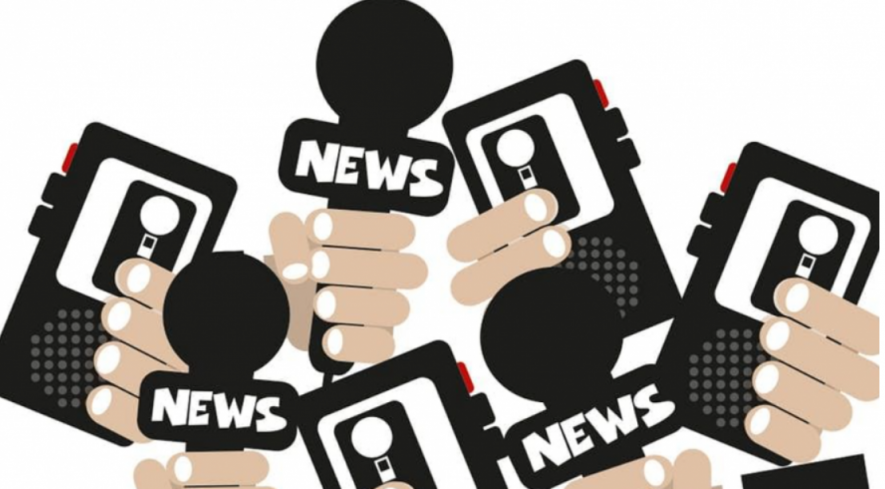Does Everybody Love a Chained Media?

Two unrelated events unfolding in a span of just five months had the country swinging from hope to despair. The arrest of three journalists from Ballia, Uttar Pradesh, for exposing the leak of the Uttar Pradesh Board Intermediate Exams, unlamented by the mainstream media, struck a chord in the district. Lawyers and traders, shut shop and observed a day’s bandh opposing their arrest. Ordinary people protesting the arrest of journalists who had exposed a scam can only mean one thing: the faith in the press to disseminate information is still unshaken.
But recently, in the context of the G20 Summit, India turned down the White House’s request to give more access to media persons travelling to India with United States President Joe Biden. The request was shot down by the Indian government and reporters were denied access to ask Biden and Prime Minister Narendra Modi questions when they met at the Prime Minister’s residence in Delhi. It was given to understand that the host—the Indian Prime Minister—had disallowed it. The United States National Security Advisor Jake Sullivan reportedly said, “This is the host of the G20 hosting a significant number of leaders, doing so in his home, and he set out the protocols.”
The refusal posed a dilemma. Should India bask in the glory of having “managed” and tamed the mighty American media by stalling any information, critical or otherwise, that could have come out in a press conference or an informal question hour with the two leaders? While the American media let their concern be known, Biden himself gave out the details of what had transpired between him and Modi in a press conference in Vietnam, though it went largely unnoticed in the cynical times we live in.
Should India mourn the fact that a free Indian media is actually an illusion and that what Freedom of Expression really means is a media managed by the BJP government? As with everything else, a little context is always helpful. In June, when Modi wooed the diaspora in the United States, he was persuaded—or cajoled—into facing the American press. He faced routine questions, which turned out to be uncomfortable for the Indian government for they had to do with human rights and equal and fair treatment to all Indians. The outcome of the press meet was expected: The reporter, who happened to be a Muslim, was trolled by large sections of social media and faced criticism on Indian TV. The White House defended the right of the reporter to ask questions.
Curbing information is nothing new for any democratic country, but especially India, which has had a very troubled relationship with a free press, and whose Constitution-framers thought it fit to place restrictions on free speech in the very first amendment to the Constitution. India had Emergency imposed by a Congress government, and the very leaders in power now had burnished their credentials in championing the cause of a free press. The now-unlamented BJP leader, LK Advani, had uttered the famous words—“when asked to bend they crawled”—a reference to the Indian press which decided to become a willing foot-soldier to a government that imposed Emergency on its people.
With the BJP in power, the government has done exactly the opposite of what it fought for. In fact, in the final statement of the G20 meet, there was a mention of respecting freedom and rights of the people.
Now for the fine print. India’s ranking on the World Press Freedom Index is now a race to the bottom. In 2022, India ranked 150 among 180 countries. In 2023, India is at 161. In fact, so furious was the Modi government at India’s dismal ranking—at odds with the self-posturing as the mother of all democracies—that an attempt was launched to draw its own press freedom index in 2021. But the effort, despite having set up a high-powered committee called the Index Monitoring Cell, has come to a naught.
Though the committee’s draft report had asked the government to “consider making it mandatory for the police to secure the consent of the Press Council of India (PCI) before filing an FIR against a media for her/his publication of a news article, cartoon, opinion or photograph,” nothing has come of it. Another key recommendation was the decriminalising of defamation!
Interestingly, in the same year, the United States-based Freedom House’s Freedom in the World Report, downgraded India’s status from a free to “partly-free” country. In the meantime, the Modi government has curbed Internet freedom in not only Kashmir but also in strife-torn Manipur, where it has gone way beyond the stipulated shutdown of telecom services in a region for up to 15 days.
Journalists elsewhere have been arrested for simply doing their work. More than a year after its founding-editor was arrested, The Kashmir Walla news website was taken down by the Centre. The website editor, Fahad Shah, was arrested last year, and despite securing bail twice, he was rearrested by the Jammu and Kashmir Police under the Public Safety Act. Then, a chilling video emerged from a small school in Uttar Pradesh, of a teacher asking her students to slap a Muslim boy and admonishing those who didn’t slap him “harder”. The government responded by prohibiting social media users from sharing the video and fact-checker Zubair Ahmed, who has often found himself in the cross-hairs of the government, has had an FIR registered against him.
A similar attempt to intimidate the media resulted in an FIR being registered against the Editor’s Guild of India for its fact-finding report at the request of the Indian Army on Manipur—which remains on the edge since 3 May.
Ironically, the opposition INDIA alliance has now identified 15 TV anchors, which its alliance members have chosen to boycott. And the Karnataka state government, where the Congress returned to power two months ago, has served an FIR against TV anchor Sudhir Chaudhary of India Today TV over allegations of disseminating misleading information.
But this is a slippery slope. The BJP government’s unsaid boycott of journalists critical of the government’s policies has only resulted in a generation of fawning hate-mongering TV actors—who crawl when asked to bend!
There is a disconcerting competitiveness on display now, between political parties as they double up as policemen to police journalists, bypassing statutory bodies like the Press Council of India and associations set up by the media itself to act as watchdogs.
Meanwhile, the Prime Minister of the world’s largest democracy continues to tweet every moment of his working day—yet refuses to engage with the Indian media. And everybody is okay with the arrangement and the management of the media.
The author is an independent journalist. The views are personal.
Get the latest reports & analysis with people's perspective on Protests, movements & deep analytical videos, discussions of the current affairs in your Telegram app. Subscribe to NewsClick's Telegram channel & get Real-Time updates on stories, as they get published on our website.
























